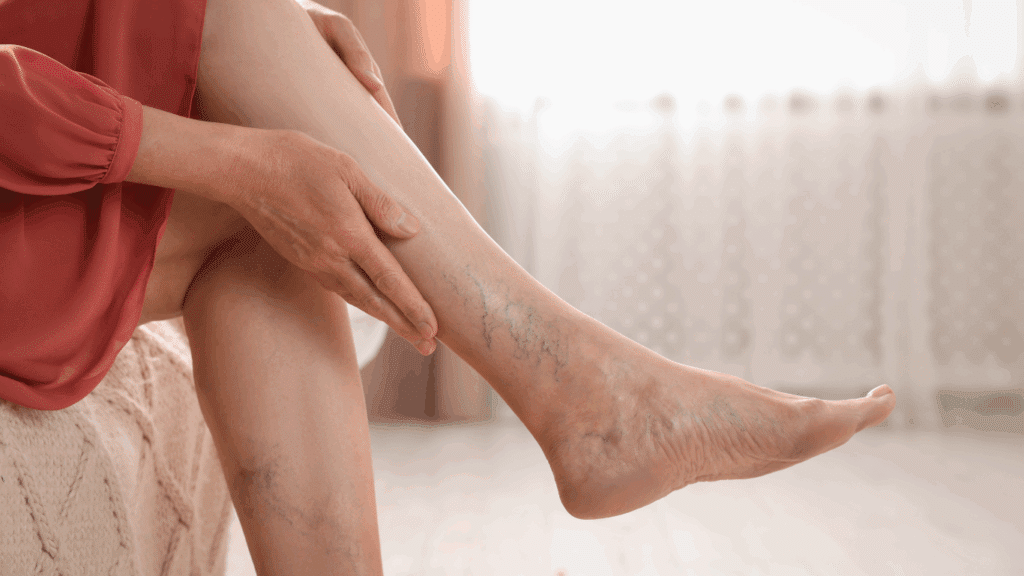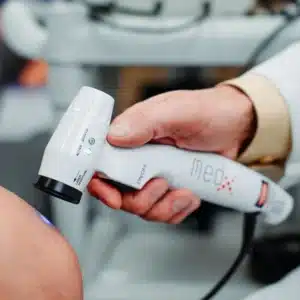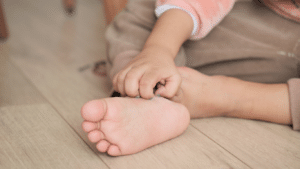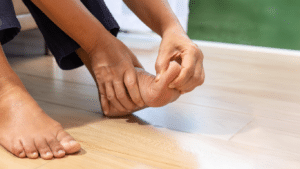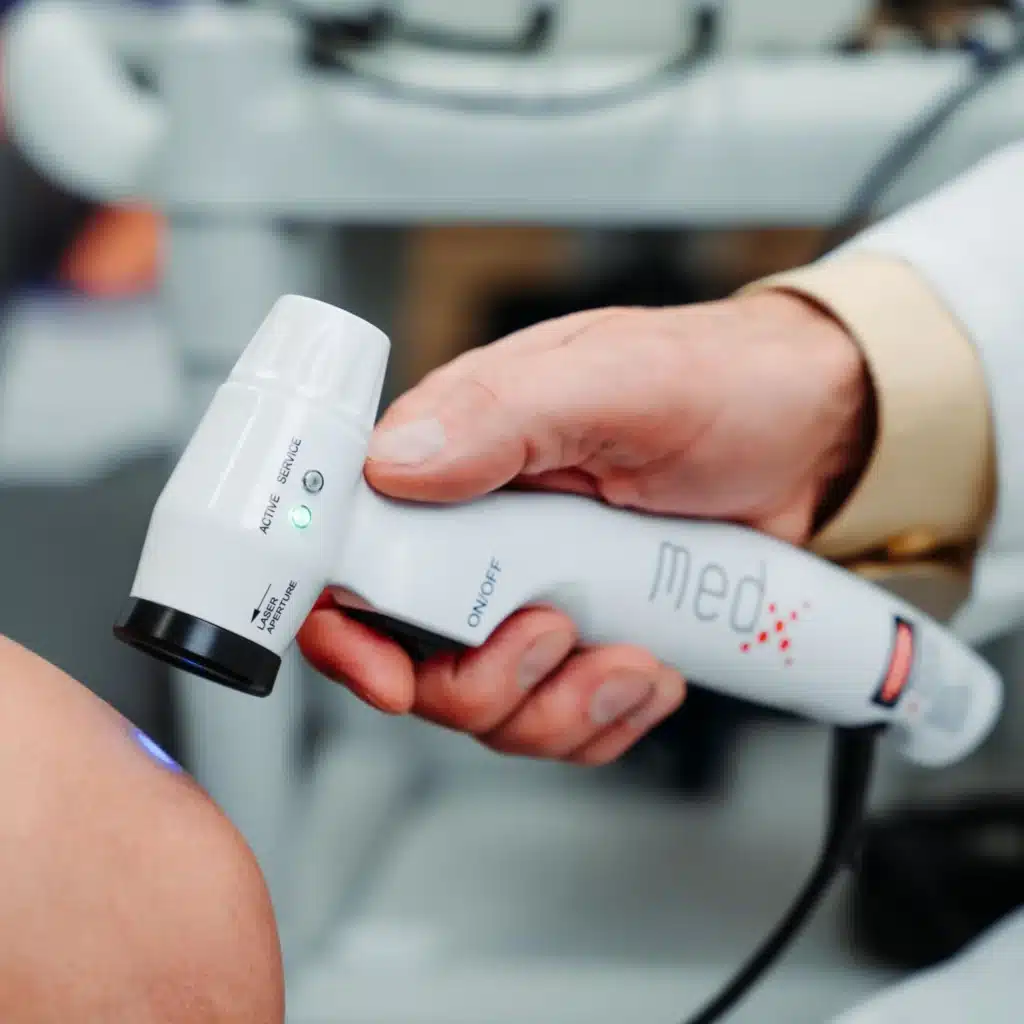Dealing with heavy, tired legs or varicose veins can affect your day-to-day life in a big way. Maybe you’ve noticed your legs feel swollen after a long day on your feet, or those bulging veins have started causing discomfort. If that sounds familiar, you’re not alone. These are common problems, but there are ways to help. One simple, effective solution is compression socks.
Compression socks are a powerful tool for improving circulation, reducing swelling, and easing the symptoms of varicose veins and leg fatigue. In this post, we’ll walk you through how they work, why they’re helpful, and how the team at LMC Footcare can guide you in choosing the right pair.
What Causes Varicose Veins and Leg Fatigue?
Varicose veins and leg fatigue both have a lot to do with circulation. Your veins work hard to push blood back up to your heart, but sometimes that process doesn’t go as smoothly as it should. When blood starts pooling in your lower legs, it can lead to swelling, heaviness, and bulging blue or purple veins known as varicose veins.
Here’s what’s happening:
- Weakened valves in the veins: Healthy veins have tiny valves that keep blood flowing upward. When those valves weaken, blood flows backward and collects in the vein, causing it to stretch and become visible.
- Poor circulation: When your legs aren’t getting enough circulation, they can feel tired, heavy, or achy, especially after long periods of standing or sitting.
- Increased pressure: Factors like pregnancy, prolonged standing, and even genetics can increase pressure on the veins, making varicose veins and leg fatigue more likely.
At LMC Footcare, we often see people dealing with these symptoms who just want to get through their day without that constant heaviness or discomfort.
How Compression Socks Help with Varicose Veins and Leg Fatigue
Compression socks work by gently squeezing your legs, which improves blood flow and helps reduce swelling. They’re designed to apply the most pressure around your ankle and gradually decrease as they go up your leg. This helps push blood back toward your heart, preventing it from pooling in your veins.
1. Improving Circulation
Better circulation means less blood pooling in your legs, which is key for managing varicose veins and reducing leg fatigue. With consistent use, compression socks can help keep your legs feeling light and energized throughout the day.
Compression socks act like an extra pump for your veins, helping your body do what it’s already trying to do more efficiently.
2. Reducing Swelling and Discomfort
Swollen, achy legs can slow you down, whether you’re on your feet all day or sitting at a desk. Compression socks reduce swelling by encouraging excess fluid to move out of your legs, helping you feel more comfortable and mobile.
- When to wear them: Compression socks are great for long workdays, travel, or any time you know you’ll be standing or sitting for extended periods.
3. Supporting Vein Health
By reducing pressure on your veins, compression socks help prevent existing varicose veins from getting worse. They can’t make them disappear, but they can ease symptoms like swelling, aching, and that tired, heavy feeling.

Who Should Consider Compression Socks?
Compression socks aren’t just for athletes or people with medical conditions. They’re helpful for anyone who experiences leg fatigue, swelling, or varicose veins, especially if you spend a lot of time on your feet or sitting for long periods.
You might benefit from compression socks if:
- You experience frequent leg fatigue or heaviness.
- You notice swelling in your ankles or calves, especially at the end of the day.
- You have varicose veins and want to prevent them from getting worse.
- You’re on your feet for work (like nurses, teachers, or retail workers).
- You sit for long periods, whether at a desk or during travel.
If any of these sound familiar, it’s worth giving compression socks a try. The team at LMC Footcare can help you figure out which level of compression is best for you and how to fit them into your routine.
Beyond Compression Socks: Lifestyle Tips for Healthier Legs
Compression socks are a great tool, but they work even better when combined with other healthy habits. Here are a few ways to support your vein health and reduce leg fatigue:
1. Stay Active
Regular movement keeps your blood flowing and reduces the pressure on your veins. Try low-impact activities like walking, swimming, or cycling to strengthen your legs without putting too much strain on your joints.
2. Elevate Your Legs
When you’re relaxing at home, prop your legs up on a pillow or footrest. This helps blood flow back to your heart and reduces swelling.
3. Watch Your Diet
Eating a balanced diet with plenty of water, fruits, and vegetables can help reduce inflammation and improve circulation. Avoid too much salt, which can cause your body to retain water and lead to swelling.
4. Maintain a Healthy Weight
Excess weight puts extra pressure on your veins, increasing the risk of varicose veins and leg fatigue. Even small weight changes can have a big impact on how your legs feel.
FAQs
1. Can compression socks prevent varicose veins?
They can’t stop varicose veins from forming, but they can slow their progression and reduce symptoms like swelling and discomfort.
2. How long should I wear compression socks each day?
It depends on your needs, but most people wear them during the day and take them off at night.
3. Are they comfortable?
Yes! Modern compression socks are designed to be comfortable and breathable. It may take a few days to get used to them, but most people quickly find them easy to wear.
4. Do I need a prescription for compression socks?
Not always. At LMC Footcare, our footcare specialists (chiropodists) can help you choose the right compression socks.
5. What colours and styles do they come in?
They come in a very wide variety of colours, styles, lengths and materials. Everything from standard black and neutral to patterns and colours. From patterned socks to sheer nylons and brightly coloured athletic options. So many colours and styles have become available over recent years that they’ve become on trend to wear.
6. Are they covered by my insurance plan?
Yes, the majority of insurance plans cover medical grade compressions stockings. If you don’t have insurance, there are also options with lower compression gradients that are also helpful, economical and stylish.
Conclusion:
If you’re tired of dealing with leg fatigue or the discomfort of varicose veins, compression socks could be just what you need. They’re a simple, effective way to improve circulation, reduce swelling, and give your legs the support they deserve.
At LMC Footcare, we’ve helped many people find relief with the right compression socks. If you want to learn more or need help choosing the best pair, visit our website or stop by our Bayview/Midtown, Vaughan, or our other locations in Ontario for personalized advice.



